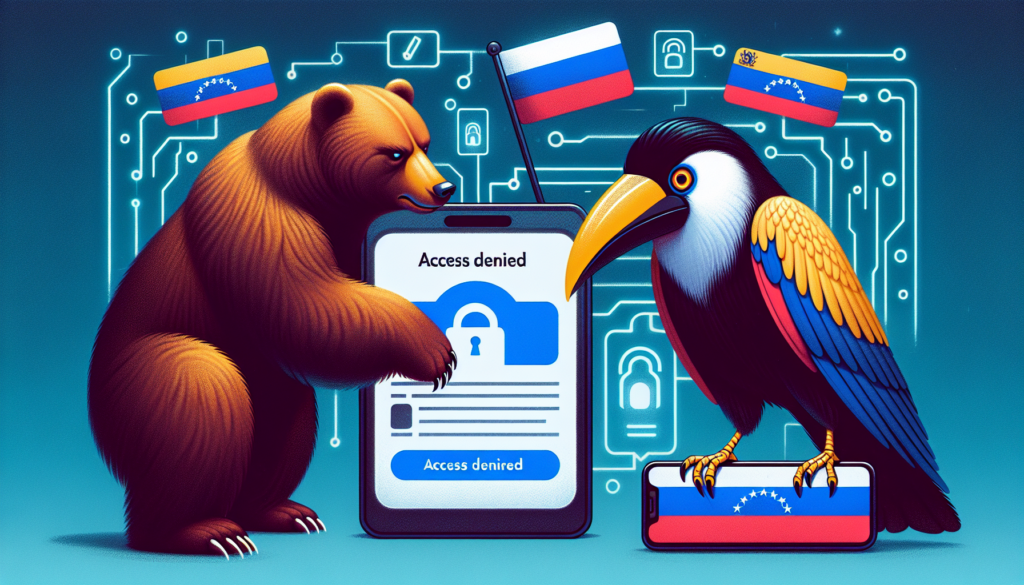
 ## Russia and Venezuela Block Signal: An In-Depth Examination of Digital Censorship
## Russia and Venezuela Block Signal: An In-Depth Examination of Digital Censorship
In today’s world, where digital communication holds immense significance, the recent prohibition of the encrypted messaging application Signal in Russia and Venezuela has drawn considerable global interest. This action, as reported by Lonelybrand, raises critical concerns regarding digital rights, censorship, and the political dynamics in these areas.
The Situation in Russia
Russia’s telecom regulatory body, Roskomnadzor, has imposed limitations on Signal, citing “breaches of Russian legal requirements.” The official rationale is that these actions are essential to avert the app’s usage for “terrorist and extremist activities.” This step is part of a larger trend in Russia, where the authorities have been consolidating their control over digital communications and social media outlets.
The Role of NetBlocks
NetBlocks, a cybersecurity monitoring organization, verified the limitation of Signal across the majority of internet service providers in Russia. Nonetheless, the app is still reachable through “censorship circumvention” options, as noted by Signal’s official communication platforms. This alternative provides a beacon of hope for users aiming to preserve their privacy and continue utilizing the app despite government-imposed limitations.
Venezuela’s Political Climate
In Venezuela, the ban on Signal is closely linked with the nation’s tumultuous political climate. After the controversial presidential election results in July, which declared President Nicolás Maduro the winner without credible evidence, tensions have escalated. The prohibition of Signal is viewed as a tactic to stifle opposition and regulate the narrative in a politically volatile atmosphere.
Broader Implications
The Venezuelan administration has also taken measures to restrict access to various other social media platforms. For instance, President Maduro recently prohibited X for ten days, accusing its owner, Elon Musk, of inciting animosity. These moves reflect an overarching strategy to silence dissenting voices and retain authority over the dissemination of information.
The Global Context of Digital Censorship
The restriction of Signal in both Russia and Venezuela forms part of a larger pattern where governments increasingly resort to digital censorship as a mechanism to regulate information and quash dissent. This situation prompts critical discussions regarding the balance between national security and individual privacy rights.
The Impact on Users
For individuals in these areas, the prohibition of Signal and similar platforms signifies a formidable challenge. Encrypted messaging applications are vital for safeguarding privacy and security in communications, particularly in regions where freedom of expression is compromised.
Wrap Up
The prohibition of Signal in Russia and Venezuela underscores the continuing conflict between government control and digital liberties. As these nations navigate their intricate political landscapes, the influence of technology on shaping public discourse and personal rights remains a pivotal concern. The global community will be closely observing these developments and their implications for the future of digital communication.
Q&A Session
Q1: What prompted Russia to block Signal?
A1: Russia’s telecommunications agency, Roskomnadzor, restricted Signal due to suspected breaches of Russian law, asserting that the app might be utilized for terrorist and extremist activities.
Q2: In what ways can users in Russia and Venezuela access Signal despite the restrictions?
A2: Users can activate “censorship circumvention” settings in Signal to navigate around restrictions and keep using the app.
Q3: What political incidents in Venezuela are associated with the blocking of Signal?
A3: The restriction on Signal in Venezuela is associated with the controversial presidential election results in July, where Nicolás Maduro was declared the victor without transparent evidence, resulting in political unrest.
Q4: Are additional social media platforms impacted in these regions?
A4: Indeed, Russia and Venezuela have limited access to other social media networks. For example, Venezuela enforced a temporary ban on X, and Russia faced a widespread YouTube service disruption.
Q5: What are the broader implications of these restrictions?
A5: These measures illustrate a global trend in digital censorship, raising issues about the delicate balance between national security and individual privacy rights. They also emphasize the difficulties users face in maintaining secure communications in oppressive environments.